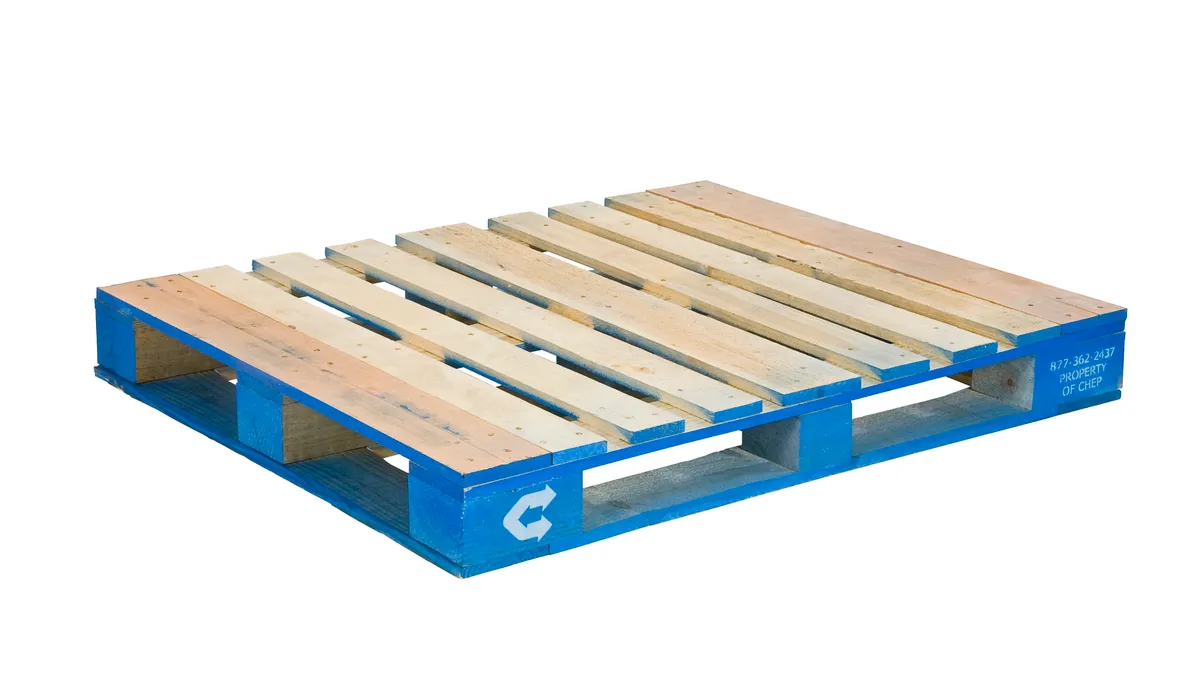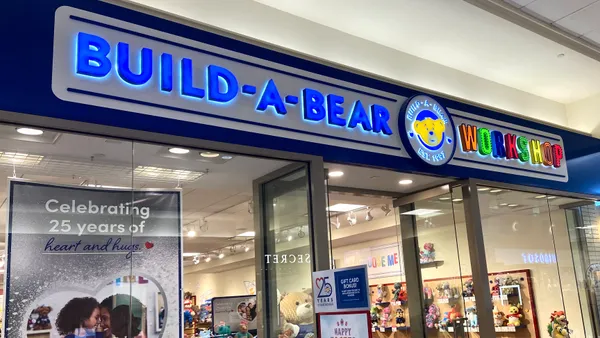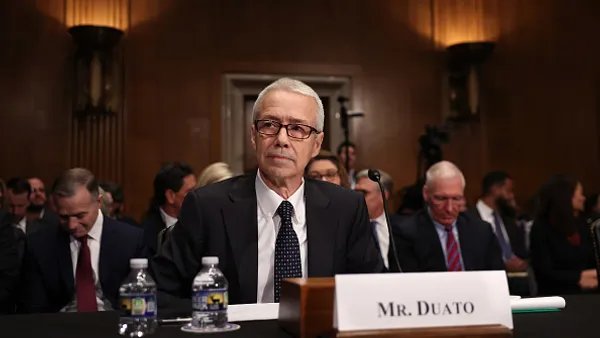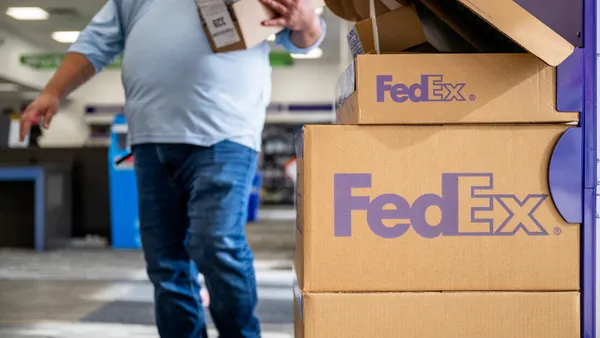Dive Brief:
- When CHEP, a supply chain management firm, and Grimmway Farms, a large-scale carrot producer, teamed to institute pallet pooling, Grimmway eliminated roughly 1.63 million pounds of solid waste and reduced the release of at least 1.23 million pounds of CO2e, which equals the elimination of about 1.4 million miles vehicle miles, CHEP.com reported.
- Grimmway also hired CHEP to suggest further sustainability measures for its Cal-Organic Farms facilities, which ultimately involved adjustments in pallet handling and sorting to create further savings.
- The methods employed in the second round of sustainability assessment include the reduction of natural resource (timber) use, smaller amounts of wood waste sent to a landfill, lower costs and carbon emissions thanks to fewer trips to the dump, and fewer returned pallets.
Dive Insight:
Sustainability and savings can be achieved in a variety of ways, including joining a materials user pool.
The movement toward sustainability can be traced through a bevy of sources, including a 2017 survey by Ecosystem Marketplace, which revealed that 57% of respondents consider environmental risk important, as well as comments by Jon Slangerup, CEO of American Global Logistics, who believes there is significant evidence that points to the ongoing greening of the supply chain.
Most recently, it's been reported that the gap between sustainable and low cost procurement is narrowing, making "greening" easier to achieve.
The success of the collaboration between Grimmway Farms and CHEP is significant in that the environmental savings are so high.
"The benefit of the farm partnering with CHEP resulted from CHEP's status as a credible, low risk global leader in the circular economy and being named to the CDP Forest A List, which places CHEP in the top 3% of companies participating in the A List’s forest program," Suzanne Lindsay-Walker, director of sustainability for CHEP parent company Brambles, told Supply Chain Dive.
"These designations help validate CHEP’s position as a pooling leader, and by pooling, Grimmway Farms has the benefit of share and reuse rather than a limited use, one-way operation solution," Lindsay-Walker said. "Since Grimmway Farms’ core values of sustainability extend to the suppliers it chooses, like CHEP, it makes both parties responsible partners to operate sustainably by increasing energy savings, reducing carbon use and decreasing solid waste."
As a result, the farms operations were positively impacted.
"By using CHEP, Grimmway Farms benefited from a centralized one-stop shop partner," Lindsay-Walker continued. "The company delivers consistent specification of the pallet (such as in size, quality, and appearance) while being more efficient in transportation, which results in network efficiencies leading to cost reduction and streamlined processes. CHEP’s network and solutions are so dense that they create transportation efficiencies directly reducing fuel cost."














